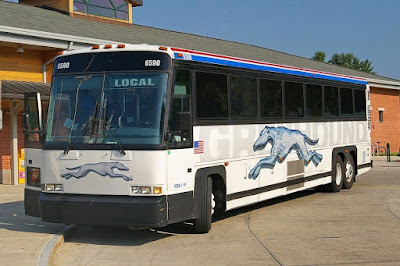Last week we heard the news that with "the exception of a single bus route between Vancouver and Seattle, all Greyhound service in British Columbia, Alberta, Saskatchewan and Manitoba will shut down as of Oct. 31". It is also cutting services in parts of Ontario.
This will have a dramatic impact on many communities and will especially impact seniors, youth, the disabled, people living in poverty and people from marginalized and racialized communities.
Yesterday we read:
Prime Minister Justin Trudeau says he's asked Transport Minister Marc Garneau to find solutions following Greyhound's withdrawal of bus service from western Canada.But the "path forward" should be no great mystery to our politicians.
Trudeau calls Greyhound's move "difficult" for people who live on the Prairies and for those who are already struggling economically.
The prime minister has directed Garneau to work with provinces, communities and Greyhound to see "what paths forward there are."
They act like it is as the obvious solution to the problem undermines their neoliberal ideological worldview and their belief in the market and the private sector. Even the NDP has bought into this mythology of the market with the BC NDP Transportation Minister feeling that the "market can fill in Greyhound vacuum" which is absurd.
The only long-term solution to provide accessible and affordable intercity and intercommunity transit is to build and maintain public bus and train lines that are run for people as a service and not for profit.
I wrote of this before on The Left Chapter stating in part:
Greyhound Canada should be immediately nationalized to maintain and even expand these routes, though we all know this is not going to happen.Read the full call to action at: Greyhound Canada shows the imperative to build intercity public transit networks
But one has to ask, what will it take before governments of all stripes in Canada abandon the neoliberal approach to transit and transportation and begin to view it, build the networks and run them as both an essential service for many millions of people and as a key tool in combating climate change?

No comments:
Post a Comment